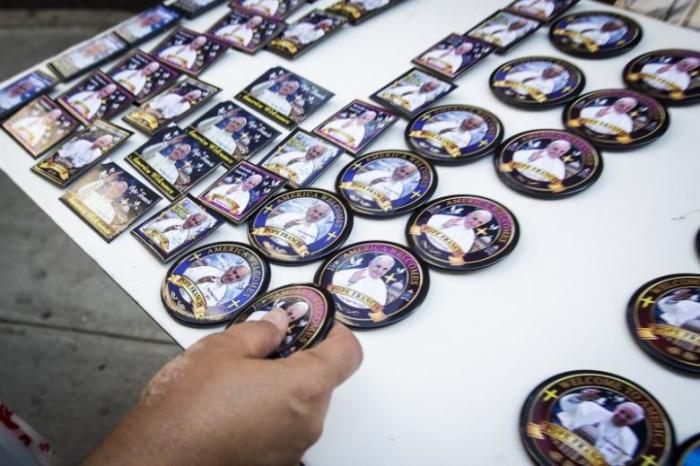Vatican Looks to Make it Illegal to Reproduce Pope's Image
Intellectual pirates, beware. The Vatican has initiated moves to copyright the image of the pope that would make it illegal to mass produce items bearing his photo without the required license. The prohibition would include the crossed keys emblem of the Holy See.
"The secretary of state will undertake systematic surveillance aimed at monitoring the way in which the image of the Holy Father and the emblems of the Holy See are used, intervening with opportune measures when necessary," warns the Vatican in a statement.

The move is seen to affect enterprising groups and individuals who have long made money from the pope's image. In particular, souvenir items such as T-shirts, mugs, pins, handkerchiefs, and even dolls, have been hot sellers in places where the pope visits.
In this age of digital printing and the internet, producing such items with the pope's images has become easier. Even parishes and religious organizations have made the practice a part of their fund-raising activities upon the encouragement of priests.
The statement didn't indicate how the Vatican plans to clamp down on unauthorized reproduction of pope-themed material, but it has sought the services of international law firm Baker McKenzie for help.
Considering, however, that the Vatican itself is also engaged in selling pope-themed material that can be found in boutiques of the Vatican museum and its website, some can't help but wonder if the move may have something to do with wiping out the competition.
"It's probably also the case that there is some genuine commercial motivation," says Mark McKenna, an intellectual property expert at Notre Dame Law School in Indiana. "They want to be sure they're the only ones selling this stuff."




























